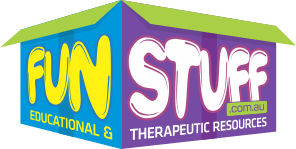Ways to Improve Social Skills for Autistic Children
If you’re the parent of a child with autism, or you’re a teacher or occupational therapist who regularly works with autistic children, then you’re already well aware of the challenges that come with trying to help a child with autism “break out of their shell” and improve their social skills.
Autism is a spectrum disorder, meaning that each person experiences it differently. Because of this, it can be difficult to know how best to support autistic children in developing their social skills. Fortunately, there are certain toys and games that are specifically designed for this purpose, and these toys can help them to express themselves and interact with others more effectively.
So if you’re asking yourself “how can I help my autistic child with social skills?”, read on for further information about how specially designed toys and games can help.
How do social skills toys help autistic children improve their social skills?
Social skills toys are designed to make socialising fun and engaging while at the same time building essential skills like communication, collaboration, empathy, and problem-solving. They help autistic children learn basic social skills such as making eye contact, conversing with peers and adults, understanding facial expressions and body language, managing emotions, and more.
By providing structure in an inviting way that makes it easier for the child to engage in activities that require interacting with others, these toys and games help the child become more comfortable with the idea of interacting with people outside of their family or circle of friends.
What types of social skill toys are available for helping children with autism improve their social skills?
- Board games are a great way to teach autistic children about rules, strategy building, taking turns, problem solving, communication, and more.
- Building sets provide autistic kids with an opportunity to practice motor planning (understanding the steps needed to complete a task) as well as hand-eye coordination and visual-spatial skills. They can also be used to work on problem solving skills as well as teaching patience while waiting for projects to finish.
- Role play kits offer opportunities for imaginative play which is extremely beneficial for autistic children who need practice with perspective taking (understanding other people’s points of view).
As an example, Hidden Rules: Friends is a fast-paced Uno-style game where players are encouraged to practice certain social behaviours that children with autism don’t necessarily learn organically; like appropriate voice volume, respect for other people’s personal space, and the finer nuances of body language. There are other useful games too, like the Sentence Shuffle Fun Deck, which utilises a colour-coding system to focus on key areas like speech, sentence structure and reasoning skills.
Shop online at Fun Stuff Educational & Therapeutic Resources today
Fun Stuff carries a wide and eclectic range of toys, games and other resources specifically designed for helping children with autism improve their social skills and communicate more effectively. Browse our range online, or contact us for more information.
Recent Posts
-
How To Create A Sensory-Friendly Play Space At Home
Designing a supportive environment for children with sensory processing needs doesn’t require …22nd Apr 2025 -
How to Improve a Child’s Impulse Control – Practical Strategies and Engaging Resources
Impulse control is a crucial skill for children, influencing their ability to regulate emotions, mak …24th Mar 2025 -
Unlocking Movement: Understanding Gross Motor Skills in Child Development
From a toddler’s first steps to a child’s ability to run, jump, and climb, gross motor s …28th Feb 2025




